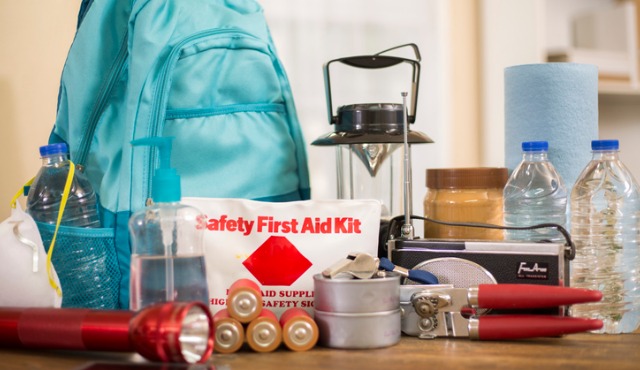Following the wake of Hurricane Ida, many homeowners are now reconsidering their action plans should a hurricane strike in their area. Residents along the Gulf Coast aren’t the only ones who are solely at risk of hurricane devastation, as Ida reminded us.
Related: Tips From Industry Professionals on Surviving Real Estate During Hurricane Season
After Hurricane Sandy, much of the Northeast made changes to local emergency plans and reassessed the risks associated with hurricanes and other extreme weather events caused by climate change. Hurricane Ida is a stark warning that many states are still woefully unprepared. Here are six steps you can take to prepare your home and your family in the event of a hurricane:
Prepare an emergency kit.
One of the most important things you can do to prepare for a hurricane is have an emergency kit ready. When putting together the kit, think of things you would need if you were to go without power for several days. It should include the following: first aid supplies, a flashlight, extra batteries, non-perishable foods, clean drinking water, towels and a supply of any necessary medications. Additionally, you can stay informed of a hurricane’s path and progress by monitoring Wireless Emergency Alerts with a battery-powered or wind up radio.
Secure the exterior of your home.
High winds from a powerful storm can carry your outdoor furniture, bikes, toys and more, far from your home. Or worse, debris could cause even more damage to your property if it into your home. You can eliminate this potential hazard by putting these items away or securing them. Also, be sure to turn off and store propane tanks, and shut down utilities, if instructed to do so by community officials.
Establish your evacuation plan.
Before a hurricane makes landfall, make sure you contact your local American Red Cross and locate the shelter closest to you, and it’s a good idea to download their Shelter Finder App. Check now if your local emergency shelter allows pets and, in the event that you have to evacuate, plan out the quickest route to get to your local shelter.
Communicate with your insurance agent.
Another thing you can do long before a potential storm could hit is talk to your insurance agent or broker about acquiring flood insurance. A great flood insurance policy could save you from financial hardship should a following a damaging event such as a hurricane. If you already have flood insurance, it’s a good idea to go over what your policy does and does not cover.
Protect your financial documents.
In the unfortunate circumstance of a devastating hurricane, you’ll need your ID and financial documents to begin the recovery process. In the days before a storm, take steps to safeguard important documents by placing them in a safety deposit box, backed up on computer storage devices or in waterproof storage containers. Documents you should store safely, include:
- Personal identification (driver’s licenses, birth certificates, military IDs, passports, etc.)
- Financial account information (checking, savings, retirement and investment accounts, credit/debit cards).
- Insurance policies on all personal property, including appraisals and lists and photos of valuable items.
- Ownership or leasing documentation for homes and vehicles (deeds, titles, registrations, rental agreements, etc.)
- All health and medical insurance documentation.
Search FEMA's Flood Map Service Center.
Lastly, check the Federal Emergency Management Agency (FEMA) Flood Map Service Center (MSC) today. The MSC is the official public source for flood hazard information produced by the agency in support of the National Flood Insurance Program (NFIP). The site will show just how much risk your community is in and what type of flood insurance coverage your home will require. Always remember that standard homeowners insurance doesn't cover flooding.
A direct hit—even from a CAT 1 or 2 storm—can cause costly damage to your property. Be sure to consider the steps listed above if you live in an area that could potentially be impacted by a hurricane. Having a plan and taking precautions now can protect your property, as well as your and your family’s lives, years in the future.








